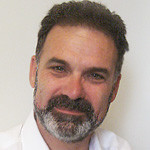Naps for young doctors
Doctors-in-training should be encouraged to do some on-the-job napping, according to the organization that sets the standards for residency programs around the country.
The (ACGME) issued new standards yesterday that came out in favor of a well-timed snooze. The guidelines, which are scheduled to go into effect next year, say this:
Programs must encourage residents to use alertness management strategies in the context of patient care responsibilities. Strategic napping, especially after 16 hours of continuous duty and between the hours of 10:00 p.m. and 8:00 a.m., is strongly encouraged.
Medical residency is the training that follows graduation from medical school. Traditionally, residents at American hospitals were expected to work marathon hours—often overnight and a couple of days in a row. These long shifts were seen as a way to get new doctors thoroughly steeped in medicine and necessary for mastery of the complexities of a medical specialty. The grueling apprenticeship is a feature of many professions. Perhaps it is the rule coming into play.
And, not so incidentally, making medical residency an endurance-slash-sleep-deprivation contest also supplied hospitals with cadres of young, eager doctors who were paid relatively low salaries.
But whether overworked (and undersupervised) residents might be endangering patients became a front-page issue after the ��������.���ճ��� and elsewhere started to show, in a systematic way, connections between the sleep-deprived residents, medical errors, and patient safety. Rules were changed to limit hours, require a certain amount of time off between shifts, and improve supervision.
There’s some question whether it is honored in the breach, but now residents are limited to working 80 hours a week on average. That is still a heckuva a lot of hours but far fewer than “good old days,”�� which were actually quite bad—and unsafe—in a lot of ways.
The Institute of Medicine (IOM) published a report on resident training two years ago. According to , the ACGME standards published yesterday followed the IOM’s lead in most respects but parted company when it came to the important issue of preventing errors by sleep-deprived residents. Here is how the The New England Journal of Medicine report summarized the difference:
The IOM recommended that resident shifts longer than 16 hours include an uninterrupted 5-hour sleep period. The ACGME task force concluded that such a long sleep period was unworkable, instead recommending “strategic napping�� during long shifts.
It’s pretty remarkable that an organization like the ACGME has endorsed napping, albeit carefully qualified as being of the strategic sort.
But napping is collecting endorsements these days.
The says that “while naps do not necessarily make up for inadequate or poor quality nighttime sleep, a short nap of 20-30 minutes can help to improve mood, alertness, and performance.��
Studies of nightshift workers have shown that their performance improves if they grab a “prophylactic nap�� before they start work. Other studies show that the “operational nap�� of just 20 minutes during a nightshift improves performance at the end of the shift, although you have to be careful about sleep inertia—that groggy feeling that lingers once you wake up from a nap.
, a prominent Harvard sleep researcher, says in some cases, a nap can provide as much benefit as a full night of sleep.
Not many businesses have truly embraced the workplace nap. But the . (Better the short nap than those multihour energy drinks with all that caffeine, provided you can get the boss to agree first.)
There’s even some discussion that —and that they do so anyway on long trips.
If you want to read more about naps, we published a piece about them �������ٳ�� �첩���� Letter last year. And our our brother publication, the Harvard Men’s Health Watch, published a piece two years ago.
About the Author

Peter Wehrwein, Contributor, �첩����
Disclaimer:
As a service to our readers, �첩���� Publishing provides access to our library of archived content. Please note the date of last review or update on all articles.
No content on this site, regardless of date, should ever be used as a substitute for direct medical advice from your doctor or other qualified clinician.















